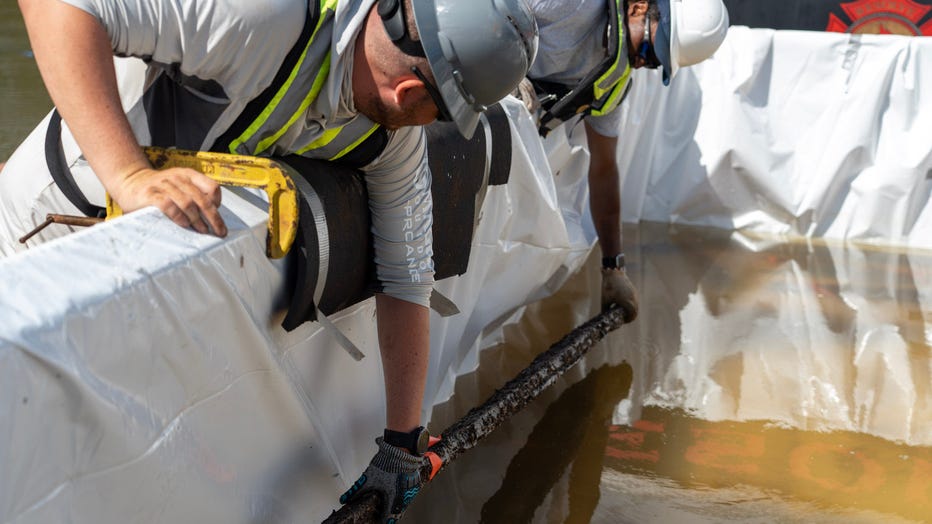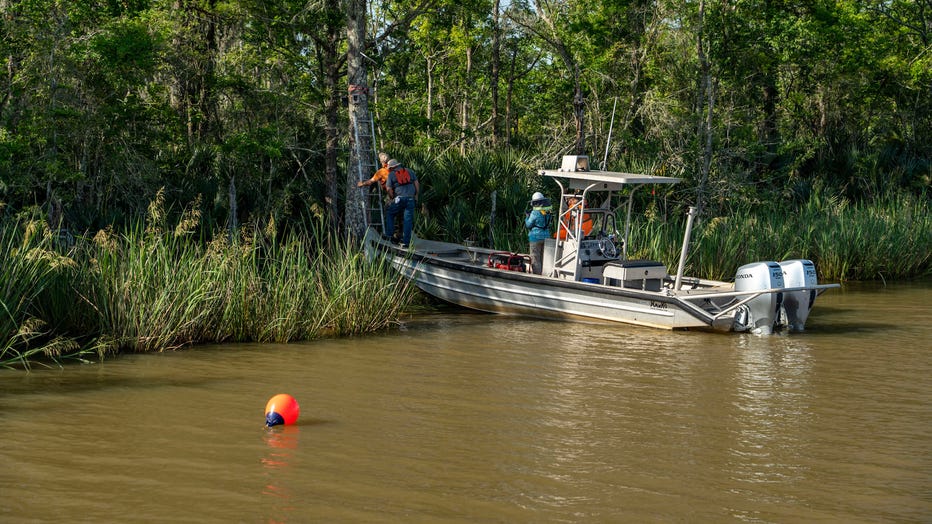The Clotilda, last known US slave ship, too decayed to be excavated, report says
Piece of The Clotilda (Alabama Historical Commission)
The Clotilda, the last known slave ship in the U.S., is too decayed to be extracted from an Alabama river and turned into a museum without dismembering it, a yearslong investigation has concluded.
The 500-page report, compiled by a task force of archaeologists, engineers and historians, says the "responsible" way to memorialize the ship is to protect it under the water where it was discovered in 2019.
The ship's discovery reignited a longstanding debate over how to address the harrowing legacy of the Clotilda, especially for the direct descendants of the survivors.
"There is no other site in the world that presents such physical evidence as the Clotilda," said James Delgado, a lead marine archeologist on the investigation who said the priority was preserving that physical evidence. "The Clotilda is the scene of the crime, so everything we did was in that crime scene investigation manner."
The Clotilda

Workers pull pieces of The Clotilda out of the Mobile River (Alabama Historical Commission)
The Clotilda was commissioned in 1860 by Timothy Meaher, one year before the Confederacy was created and decades after the importation of slaves was made punishable by death in 1808. Captained by William Foster, the ship traveled to West Africa and illegally smuggled 110 Africans back to Alabama. Foster then attempted to burn and sink the ship to hide the crime.
After the Civil War freed the survivors of the Clotilda, historical records show 32 of them bought land from Meaher and established what is now Africatown, formally known as Plateau, about 3 miles north of Mobile.
The ship's remains stayed, unidentified in the Mobile River until 2019.
READ MORE: Slavery reparations: How the US can follow one town's effort to right dark past
The Meaher family still has millions of dollars in real estate holdings in the area, as well as parks and roads that bear the family name.
‘Museums have power’

Site of the Clotilda on the Mobile River (Alabama Historical Commission)
Some had hoped The Clotilda was intact enough to be fully excavated and turned into a museum on land.
"Museums have power, and that ship loses its power if it is sitting in the water," said Ben Raines, a former local reporter who wrote a book about the Clotilda.
Key historical evidence on the ship includes the lower hull where the enslaved Africans were held in captivity. Deep water dives revealed the confined chambers where 110 people were held remain mostly intact.
The president of the Clotilda Descendants Association, Jeremy Ellis, became visibly emotional when Delgado shared details of the compartment where his ancestors were kept.
READ MORE: Alabama high school student digs up 34-million-year-old whale skull on family farm
"Since we’ve been able to learn more about what they really experienced and how small that cargo hold was and how on top of each other they were, it’s very chilling," said Ellis, who is in his early 40s and a sixth-generation descendant of Clotilda survivors Pollee and Rose Allen. "And it makes me want to continue the effort of reconciliation and healing for the descendants."
What’s next for The Clotilda?
Instead of an excavation, the report recommended a plan that would preserve the structure underneath the water by installing large pillars around the ship to protect it from other ships and vessels.
Ultimately the task force said that the underwater preservation plan would only protect the structure for an estimated 100 years before it fully succumbs to erosion. They added the timeline could be shortened by climate change, which will likely affect the levels, temperatures and salinity of the water around the ship.
And while the prospect of a Clotilda land museum hasn’t been completely ruled out, that process would require the ship to be disassembled "piece by piece, nail by nail," and could compromise some of the remaining physical clues about the experiences of the enslaved people aboard.

